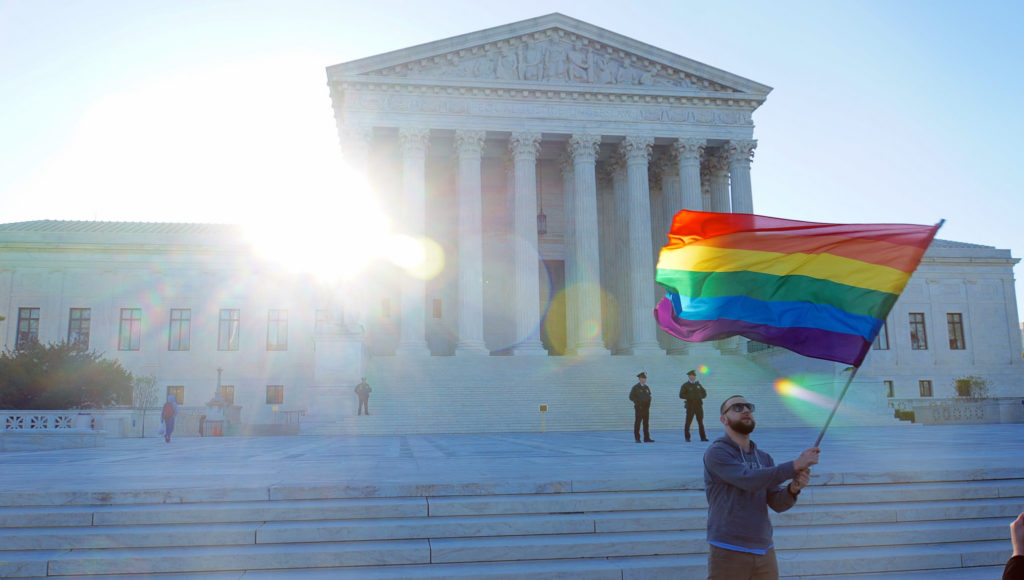
An attorney representing the state of Tennessee argued against same-sex marriage yesterday in front the U.S. Supreme Court. The case called Obergefell v. Hodges deals with lawsuits from four states — Michigan, Kentucky, Ohio and Tennessee — and we’ll take you through Tennessee’s role in this case.
How Did Tennessee Become Part Of This Case?
About a year and a half ago, several Tennessee gay couples who had been legally married in another state joined a lawsuit suing the state for recognition. As we reported last month:
In March 2014, a U.S. district court judge ordered what’s called a preliminary injunction, effectively forcing the state of Tennessee to recognize their marriage while the case was pending. That only lasted about a month because in April, a higher court overturned the order.
The Tennessee case, Tanco v. Haslam, was appealed to the Sixth Circuit Court of Appeals — one step below the Supreme Court — which heard it along with cases from three other states. The Sixth Circuit ruled that states do not have to recognize gay marriages performed in other states, nor do they have to perform their own gay marriages.
It was the first district court to make this judgment — every other court on its level had ruled in favor of same-sex marriage. Likely because of the conflicting opinions, the U.S. Supreme Court agreed to hear the case.
What Is Tennessee’s Argument?
The Supreme Court case consolidates the lawsuits from all four states into two main questions:
- Are states required to license a marriage between two people of the same sex?
- Are states required to recognize a marriage between two people of the same sex when their marriage was performed out-of-state?
Tennessee’s portion only deals with the second question: whether it has to recognize gay marriages that were performed in a different state. Attorney Joseph Whalen argued that if a gay couple doesn’t like Tennessee’s laws, they don’t have to move here.
“It is the strength of our federal structure” as a country, he said, “to accommodate the very difference in viewpoint that this fundamental debate we’re having over same-sex marriage generates.”
A lawyer for the opposing side argued some couples may have to move to Tennessee, for example, if they’re stationed here in the military.
So What About The First Question?
Indeed, the Supreme Court case is focusing on the more fundamental question #1, posed by lawsuits in Michigan and Kentucky: whether states are allowed to ban same-sex marriages at all.
That question has been getting far more attention, both from the press and from Justice Anthony Kennedy, who’s considered a swing vote in this debate. In the courtroom, he asked lawyers almost a dozen questions about the same-sex marriage ban; he only asked one question about Tennessee’s marriage recognition law.
How Are Tennessee Activists Reacting?
As the Supreme Court heard arguments Tuesday morning, the Nashville-based Southern Baptist Convention asked members to pray for the justices. The Christian denomination believes marriage should stay between a man and a woman.
But no matter what the court decides, the societal opinion of marriage has shifted, says ethics commission leader Russell Moore. The Southern Baptist Convention has held several conferences to prepare its churches for what Moore calls a “post-same-sex marriage America.”
“We’re going to be considered out of step with American culture in many ways, and so be it,” he said. “I’d rather be on the wrong side of history than the wrong side of Jesus. But I don’t think I’m on the wrong side of either on this issue.”
Meanwhile, the Tennessee Equality Project organized rallies yesterday in Nashville, Knoxville and Memphis to raise support for gay marriage.


